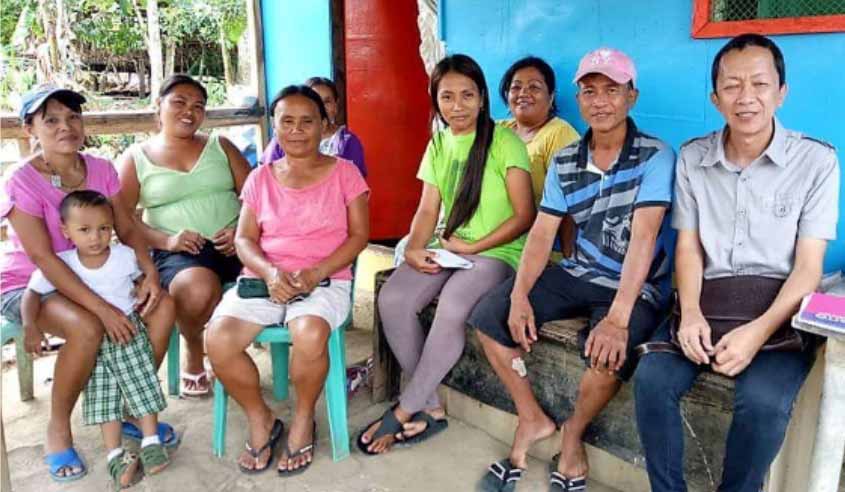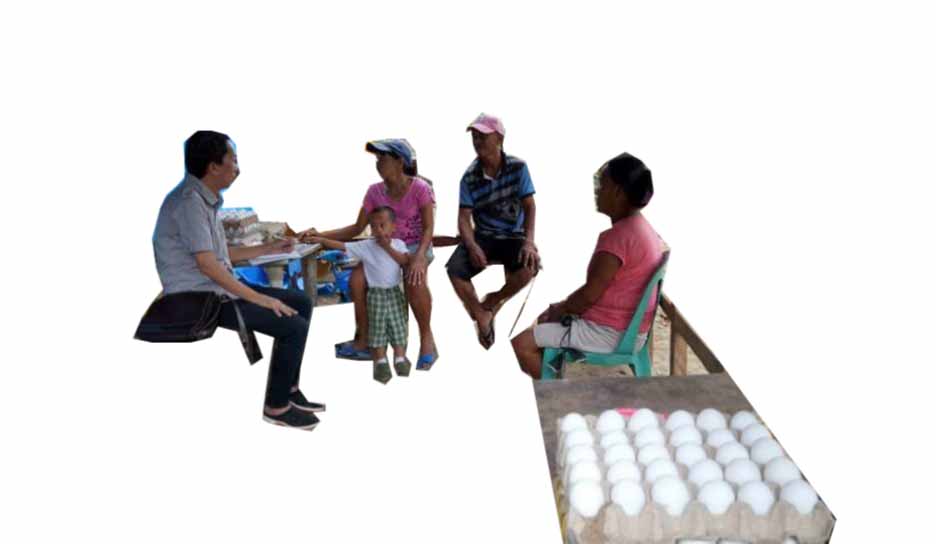SAMAR—It’s not what you’re thinking. The article isn’t about the universal enigma of what comes ahead: the chicken or the egg.
Rather, this is a story about how poor farmers, who do not even realize that they are poor because it has become a way of life for them, were helped by the Department of Agriculture (DA) – Special Area for Agricultural Development (SAAD) Program to slowly rise from the sorry situation they are in.
Marilyn P. Bondocan, 45, Flor T. Ompad, 52, and Ronnie Avelino, 46, residents of Brgy. Anibongon, Sta. Rita, Samar, are among the six (6) recipients of the Poultry Production Project granted by SAAD Program to the locality. They were selected according to the 11–step process followed by the program and had undergone validation as belonging to the “poorest of the poor.”
As is typical of rural inhabitants, they reached grade school level or had graduated from elementary school, are married, landless, supporting families with children ranging from 2–10, unemployed, except for Ronnie who works as janitor of the local high school. Some work as farm hands during planting and harvest seasons.
They cultivate backyard gardens that grow sari–saring gulay (assorted vegetables). All are beneficiaries of the Department of Social Welfare and Development (DSWD)’s Pantawid Pamilyang Pilipino Program or 4Ps.
On 18 June 2018, each of them was provided with six (6) pullets and seven (7) sacks of layer feeds. Upon delivery of the inputs, geo–tagging and proper documentation were conducted. Being members of farmers’ associations, namely, Anibongon Integrated Multi-Sectoral Farmers Association (AIMSFA) and Anibongon Farmers Association (AFA), they decided to merge their poultry production with an existing Sustainable Livelihood Project (SLP) of DSWD that also raises chicken, and whose members also belong to the same organizations.
The primary reason given for this strategic move is convenience. From the time the chicken coop of these associations was constructed until the present, officers and members regularly conduct pintakasi, taking turns in tending to the chickens daily, maintaining the cleanliness and sanitary conditions of the immediate environment, looking after the safety of the animals every time the area and surrounding barangays are inundated, administering drugs and biologics, vending eggs, etc. Hence, they do not have to render service every day, but only on scheduled duty hours, so work at the project site does not come in conflict with household chores and personal obligations.
The recipients disclosed that the eggs they produce are sold on a per tray basis, and they are not even enough to supply the needs of the barangay.
Defective stocks and inventories are brought home to be cooked by mothers to supplement the nutritional requirements of their children. They hope to sustain their production for the duration of the egg–laying life of the chickens, which is about eighteen (18) months. Some of them plan to engage in swine production from the income they will earn from the project. Profit sharing, which they are so looking forward to, is done every three months.
So, it’s not chicken OR egg, for both are considered invaluable by these farmers who would like to debunk the myth that they are disadvantaged due to their geographic and infrastructure limitations. With the interventions that SAAD Program provided them and for which they are grateful, the beneficiaries are optimistic that with proper management of their poultry production, they are gradually on their way to overcoming the hardships they face day by day. ###
Writer: Michael F. Dabuet, DA-RFO 8 Adminstrative Officer III
Copy Editor: Ela Arciaga, SAAD NPMO PR & Communications Officer
Originally published on Peryodikit – August News (Issue No. VIII, Volume No. II Series of 2018), Department of Agriculture – Special Area for Agricultural Development Program (DA-SAAD) Regional Field Office VIII Official Publication



Comments (0)